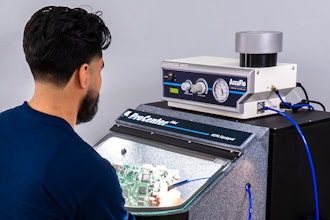
Danaher announced a strategic partnership with the University of Pennsylvania (Penn) focusing on cell therapy innovation. The multi-year partnership aims to develop new technologies that will improve the consistency of clinical outcomes for patients and overcome manufacturing bottlenecks in the delivery of next generation engineered cell products.
There are currently six CAR T cell therapies approved by the U.S. Food and Drug Administration, and at least 560 programs in ongoing clinical trials. This scale of clinical development indicates the potential the biopharma industry sees for these therapies to improve the treatment landscape for patients with limited options today. However, the impact of cell therapies on human health is being limited by an inability to scale manufacturing in a cost- and time-effective way.
Vanessa Almendro, VP, Science and Technology Innovation, Danaher, said: "Our understanding of science is evolving faster than ever, but to efficiently translate these discoveries into potentially life-changing therapies we need an equivalent acceleration in manufacturing innovation. We are delighted to be partnering with the CAR T pioneers at Penn and believe that combining our expertise in science and technology will help bring the next generation of cell therapies to patients faster."
Carl H. June, MD, Richard W. Vague Professor of Immunotherapy, University of Pennsylvania, said: "We look forward to working together to address some of the current challenges of the complex manufacturing process for CAR T cell therapy and to maximize the impact of these cellular immunotherapies for more patients in need."
The Beacon for Cell Therapy Innovation with Penn is a part of the Danaher Beacons program, which funds pioneering scientific research carried out in academic settings. The ultimate objective of this program is to develop innovative technologies and applications that can improve human health. The program's focus areas include genomic medicines, precision diagnostics, next generation biomanufacturing, human systems, and data sciences.
The focus of this Beacon will be on product solutions that address bottlenecks impacting cell therapy manufacturing yield and quality. Penn's work will be led by Joseph Fraietta, PhD, assistant professor of Microbiology; Saar Gill, MD, PhD, associate professor of Hematology-Oncology; Friederike Herbst-Nowrouzi, PhD, director of the Human Genome Editing Laboratory; and Megan Suhoski, PhD, director, Product Development Laboratory. All of the principal investigators involved are part of the Center for Cellular Immunotherapies, led by Carl June.






















